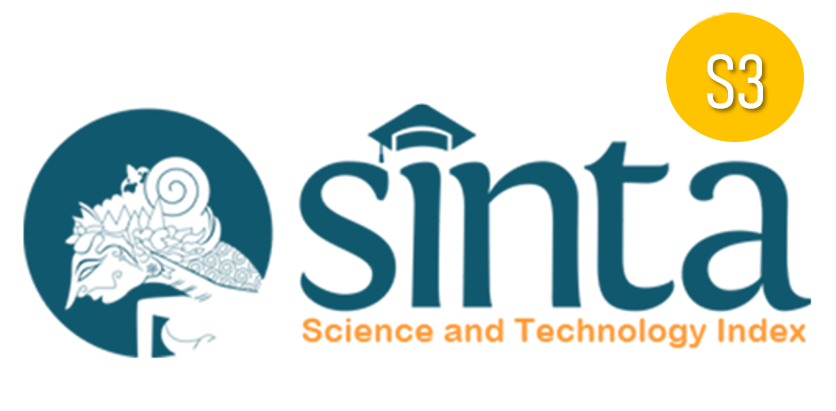Six Points a Legacy of Historic Events in Bangladesh: An Education Perspective
Abstract
The purpose of this article show that Six-Point has been a prime political Impetus created by Bangabandhu Sheikh Mujibur Rahman, the father of the nation. In it, he has risen the importance of rights to be ensured for the people of Bengal who were deprived of their rights and struggling to lead a secure life and rightful position. This demand raised by Bangabandhu is a leading political issue that even smoothens the achievement of independence. Bangabandhu points out the demands after being deprived of the rights known asthe Charter of Freedom. So, he raises the demands and gives the Bengalis a road to be walked for the rights of their liberty. These points are the first political achievement of Bengalis through the demands raised by Bangabandhu. In this article, a qualitative approach has been poured and the significance of Six-Point has been seen in gathering data from Sherpur, Bangladesh. The Six-Point Movement has whirled the spirit inside the mind of the Bengalis and led them to further achievement and independence. The Six Points paced up other movements until they gain their liberty. The necessity of such demand is very much required for the momentum of the Bengalis of East Pakistan then and Bangabandhu holds the reasons of the Six -Point Movement for giving Bengalis the rights becoming rightful for ensuring their deprived rights in the demands, Six-Point Movement.
Keywords
Full Text:
PDFReferences
Ahmad, K. (1978). Six-point movement and the emergence of Bangladesh. South Asian Studies, 8, 80-90.
Ahmed, F. (1972). The struggle in Bangladesh. Bulletin of Concerned Asian Scholars, 4(1), 2-22.
Billano, G. C., Cogollo, J. J. P., Cruz, E. M. C. D., Manahan, M. L. P., Romualdo, S. N. D., Rizaldo, T. J. T., Abusma, S. H. P., and Onia, S. M. F. (2021). Preference of generation z towards social interaction. Indonesian Journal of Community and Special Needs Education, 1(1), 41-46.
Choudhury, G. W. (1972). Bangladesh: Why it happened. International Affairs (Royal Institute of International Affairs 1944-), 48(2), 242-249.
Hossain, K. (1979). Political development in Bangladesh: Promise and reality. Journal of Developing Societies, 14, 103-110.
Hossain, M. (2009). Bangladesh war of independence: A moral issue. Economic and Political Weekly, 44(5), 26-29.
Hossain, M. (2019). Political activities of sheikh Mujibur Rahman as a charismatic leader. London Journal of Research in Humanities and Social Sciences, 19(4), 1-10.
Islam, M. (2018). The politics behind the passage of fourth amendment to the constitution of the people’s republic of Bangladesh and its provisions: A modest analysis. Public Policy and Administration Research, 4(9), 55-66.
Islam, M., and Islam, R. (2021). From 7 March to Independence (Sat-e-March Theke Swadhinata) (In Bengali). Strategic Analysis, 45(6), 656-659.
Jubaer, S. M. O. F., and Hassan, M. N. (2021). The political ideology and philosophy of Bangabandhu sheikh Mujibur Rahman in the context of founding a nation. World Bulletin of Social Sciences, 2, 24-35.
Kabir, S. H. (1998). The six points movement: A factor transforming east Pakistani regionalism into Bangladeshi nationalism. Journal of the Pakistan Historical Society, 46(1), 51-59.
Karmaker, R. (2021a). Bangabandhu's declaring 7th March speech, a road to independence. International Journal of Scientific Research in Multidisciplinary Studies, 7(4), 69-74.
Karmaker, R. (2021b). Bangabandhu kindling language movement. International Journal of Scientific Research in Multidisciplinary Studies, 7(7), 41-46.
Karmaker, R. (2022). The education thought of Bangabandhu sheikh Mujibur Rahman modernizing Bangladesh. Education, 8(8), 32-37.
Khan, Z. R. (1972). March movement of Bangladesh: Bengali struggle for political power. The Indian Journal of Political Science, 33(3), 291-322.
Khan, Z. R. (1976). Leadership, parties and politics in Bangladesh. Western Political Quarterly, 29(1), 102-125.
Ludden, D. (2011). The politics of independence in Bangladesh. Economic and Political Weekly, 46(35), 79-85.
Mantoo, S. (2015). Sheikh Mujibur Rehman: Founder of Bangladesh. African Journal of Political Science and International Relations, 9(5), 152-158.
Medani, D. I., and Sakti, A. W., (2022). Introduction of Indonesian poem (pantun) as a creative effort of elementary school students in improving language skills in the Covid-19 pandemic era. Indonesian Journal of Multidiciplinary Research, 2(1), 229-236.
Minghat, A. D., Arpentieva, M. R., and Kassymova, G. K. (2023). Anticipation and understanding of events and mental stresses as the effect of changes and transformations in human and social life: An education perspective. ASEAN Journal of Community and Special Needs Education, 2(1), 27-34.
Mojaveri, H. S., Daftaribesheli, M., and Allahbakhsh, A. (2016). The relationship between social performance and corporate financial performance. Indonesian Journal of Science and Technology, 1(2), 216-231.
Murad, M. D. H. R., and Mim, A. (2020). The magical leadership of bangabandhu sheikh Mujibur Rahman. Pakistan Language and Humanities Review, 4(1), 1-16.
Owen, J. E. (1972). The emergence of Bangladesh. Current History, 63(375), 206-233.
Shamsuddoha, M. (2020). The speech of bangabandhu sheikh Mujibur Rahman on 7th March 1971: A historical analysis. Journal of Social and Political Sciences, 3(1), 1-14.
Siddika, A., and Khan, A. S. (2021). Sheikh Mujibur Rahman and the understanding of democracy: A brief analysis. Scholars Journal of Arts, Humanities and Social Sciences, 1, 31-37.
Thorp, J. P. (1987). Sheikh Mujibur Rahman, a cyclone and the emergence of Bangladesh. South Asia Research, 7(2), 143-167.
Widianti, R. I. L., and Sudana, U. (2022). Conceptualization of metaphors: Economic condition, corruption cases, and the corruption eradication commission. ASEAN Journal of Economic and Economic Education, 1(1), 35-40.
DOI: https://doi.org/10.17509/ijert.v3i3.56987
Refbacks
- There are currently no refbacks.
Copyright (c) 2023 Universitas Pendidikan Indonesia (UPI)

This work is licensed under a Creative Commons Attribution-ShareAlike 4.0 International License.







.png)




